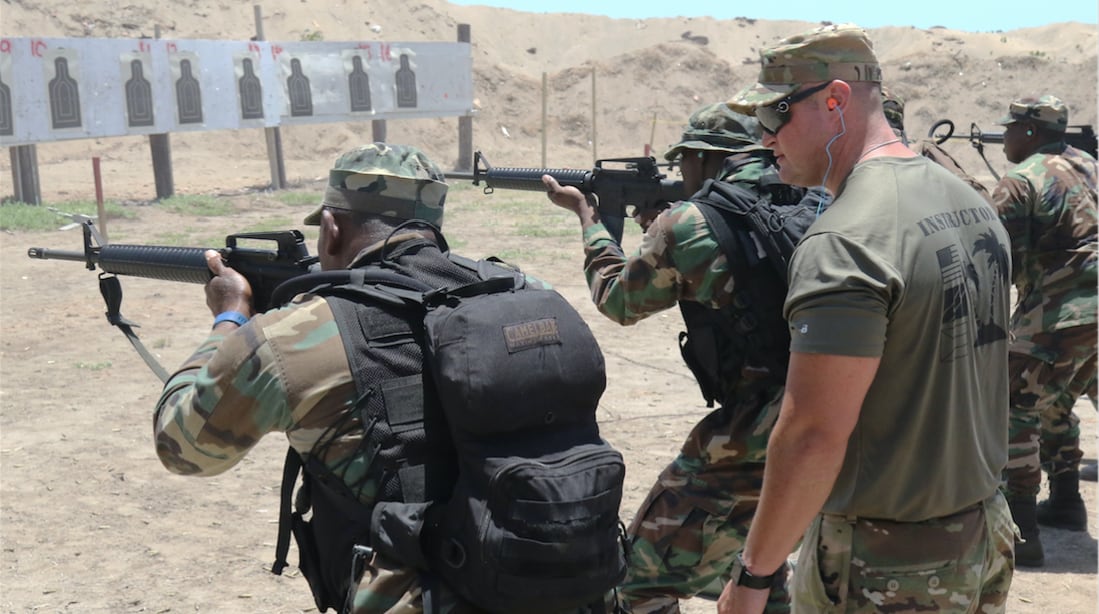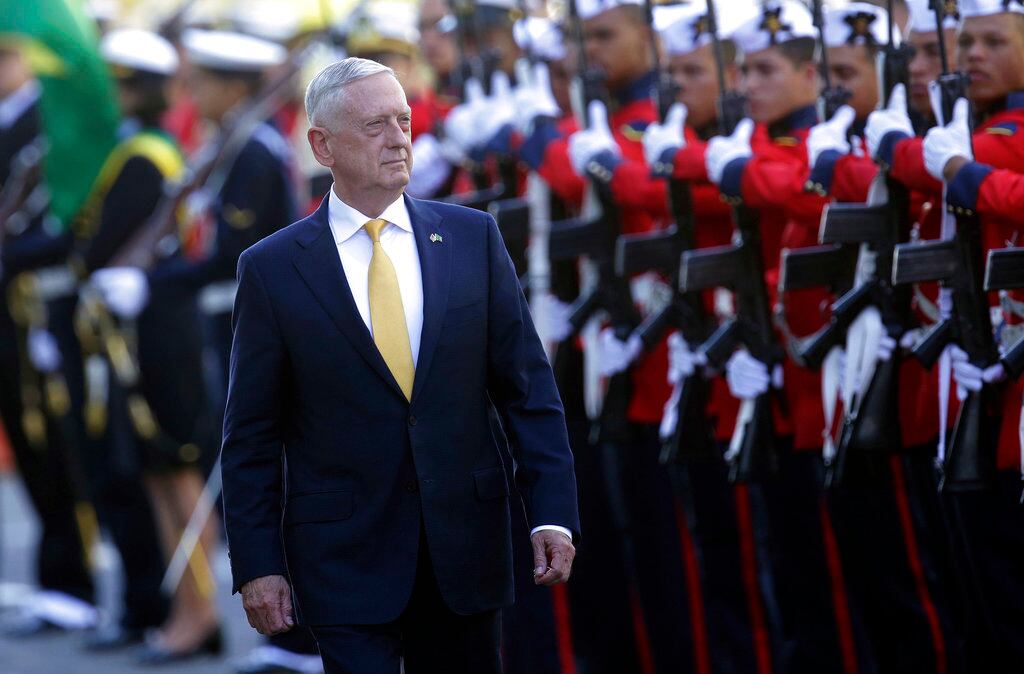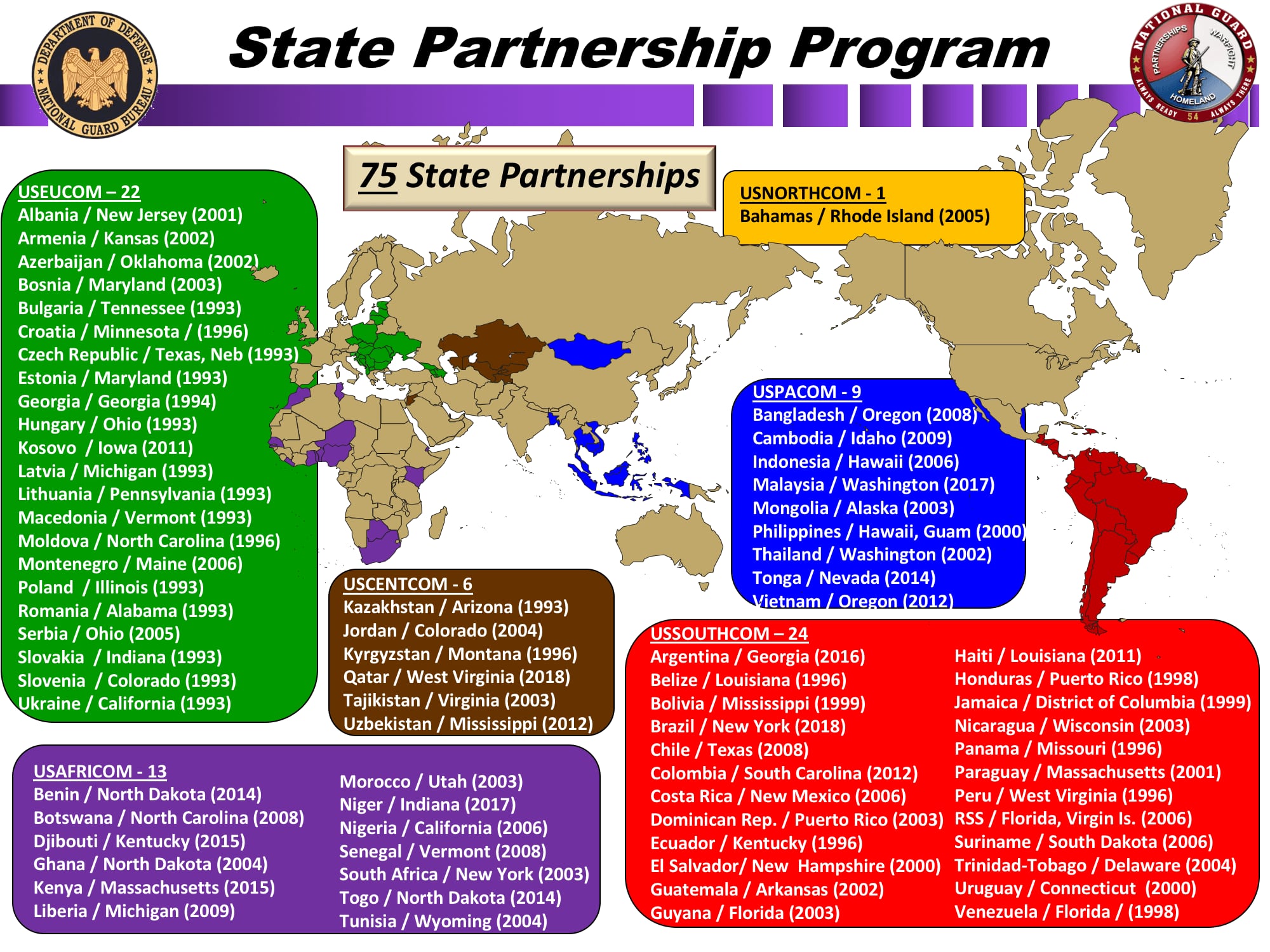NEW ORLEANS — The National Guard is playing a pivotal role in Defense Secretary Jim Mattis' strategy to cultivate allies, particularly those in South America — where he just returned from a trip to evaluate the United States' military relationship with Brazil, Argentina, Chile and Colombia.
Chile in particular, he said, is lobbying for extra support in the cyber domain from the Texas National Guard. That plays into the DoD’s strategy of courting old and new allies alike to shore up support in an era of renewed “great power competition,” according to Mattis.
“This department is laser focused on strengthening alliances and building new partnerships,” Mattis said at the 140th National Guard Association of the United States conference in New Orleans, Louisiana, this weekend.
Guardsmen, Mattis explained, play a unique role in linking the U.S. military to South American allies, where some perceive Chinese influence has grown in recent years.
“This is not a one-time mission, and the Guard is uniquely suited to sustain allied efforts over many years thanks to the amount of corporate continuity you maintain in your ranks," Mattis said.

The U.S. defense secretary spent part of his trip to South America this month warning allies of China’s “predatory economics.”
The cornerstone of what Mattis called “military to military" and "human heart to human heart” relations is the Guard’s State Partnership Program, or SPP.
The program — which has been ongoing for 25 years — is administered by the National Guard Bureau with the Defense Department and State Department’s policy goals in mind. Of the 75 countries that have been involved in the program, 24 are located in South America.
Two new partnerships are starting in 2018: one in Brazil with the New York National Guard, and one in Qatar with the West Virginia National Guard.
RELATED

"In Brazil, one of the subjects I discussed with my counterpart was how to craft one of the most strategic relationships that we face with that nation in its coming of age,” Mattis said this weekend, highlighting Brazil’s increased significance in recent years.
When speaking to a cohort of military students in Brazil during the trip, Mattis called for increased cyber partnerships to defend U.S. space assets, according to Voice of America.
China’s threats have been made clear on that issue. In 2007, the country used a missile to destroy one of their own satellites in space.
“We understand the message China was sending, that they could take out a satellite in space,” Mattis told the military students.
Since then, China has shown interest in boosting Latin American space efforts, and even financed and operated a space center in Argentina.
Sharing more cyber and space assets could curb China’s clout.
“In Chile, the Texas National Guard was requested to enhance defense cooperation with a key Latin American and Pacific [Ocean] partner," Mattis said this weekend. "Particularly on the protection of Chile’s cyber domain — an area of concern, I might add, increasingly shared by every democracy I speak with.”

Some partnerships in the region have soured. Programs once active in Bolivia, Ecuador and Venezuela “are mostly dormant, due to strained relationships with the U.S. government,” according to the Pentagon’s 2016 report to Congress on the initiative.
But elsewhere, Mattis said the relationships are working, and he’s looking for more opportunities. For instance, “in Argentina," he said, "troops from the Blue Ridge Mountains of Georgia were training alongside troops from the Andes [Mountains] and the Pampas [lowlands].”
That shared experience is critical if the U.S. military is going to be successful in challenging peer adversaries like China, who are also looking to woo allies.
“I’ve fought many times on many battlefields. ... I’ve never fought in an all-American formation," he added. “History is very clear: nations with allies thrive, while those without allies die."
Kyle Rempfer was an editor and reporter who has covered combat operations, criminal cases, foreign military assistance and training accidents. Before entering journalism, Kyle served in U.S. Air Force Special Tactics and deployed in 2014 to Paktika Province, Afghanistan, and Baghdad, Iraq.
